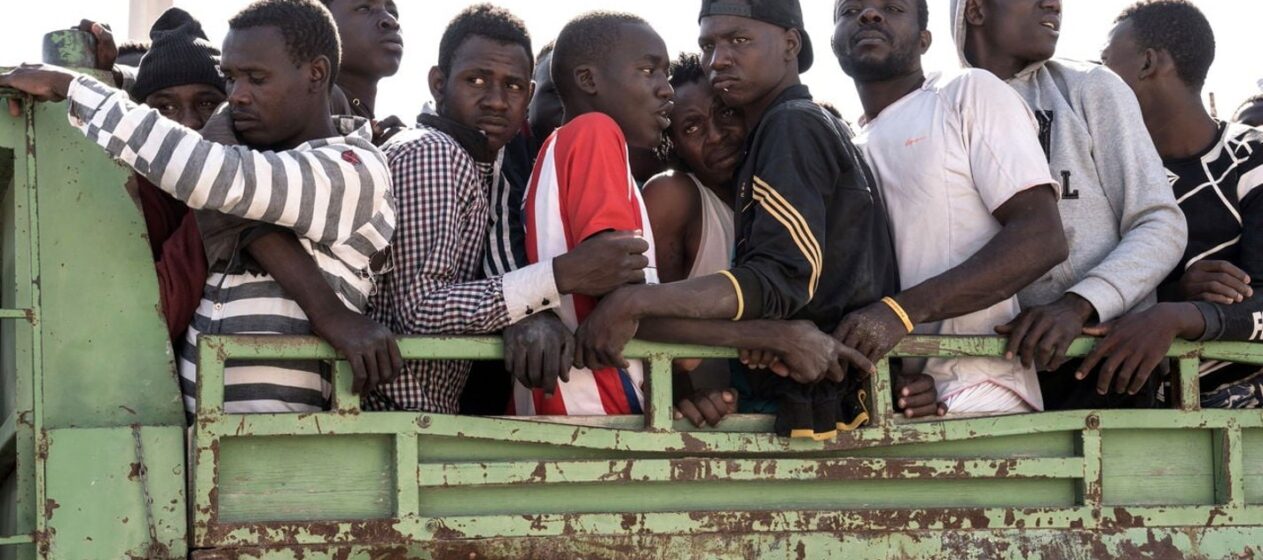We all remember the New Deal, or New Deal, this audacious policy initiated by American President Roosevelt to deal, initially urgently and then to improve it in the long term, with the terrible situation resulting from the Great Depression. caused by the stock market crash of 1929 extending into World War II.
This courageous policy having successfully tackled one of the greatest economic crises of the last century, is traditionally divided into two New Deals. Initially, she was keen to improve the situation of the victims in the short term, notably with extremely urgent banking, social assistance and agricultural reform laws. Secondly, from 1935 to 1938, it worked to consolidate the first tangible achievements, extending the scope of the first laws in terms of redistribution of resources and power, greater social and union protection in addition to precarious forms of work. .
Great humanitarian depression
Undoubtedly, we are experiencing a great humanitarian depression on a global scale today, particularly in the Mediterranean. A new situation is therefore imperative in order to put an end to the current vicious circle of ineffective security measures, in addition to their blatant illegality and the recurring tragedies of boat people, these refugees of the sea. Because everything indicates that the latter are increasing without respite, illegal immigration having become almost a lucrative industry for certain forms of organized crime feeding on exponentially increasing popular despair.
However, what are we doing in Tunisia to help get out of European inertia which has become criminal within the framework of its current policy of scribbling, putting huge sums into measures without faith or law, and above all without any use other than moving everything the problem with its tragedies on the southern Mediterranean shore thanks to the active or passive complicity of the authorities of its countries.
Certainly, Tunisian leaders, keen on virtuous slogans, but without ensuring that they do not sound hollow, are increasing calls for a solution other than security. And while constantly celebrating the formal sovereignty of a people who are still enslaved by the laws of the supposedly fallen dictatorship, they use it for brilliant actions, both internationally and nationally.
However, such actions are surprising given their contradictory effects on the strict question of illegal migration. And this, to the great dismay of the aficionados of the President of the Republic who wants to be the herald of a popular will yet suppressed by security actions which are only carried out – it should be noted – in accordance with the laws in force. Hence the obvious misunderstanding between a people thirsty for justice and their leaders wanting to give it to them, which is the cause and effect of a serious crisis, particularly in terms of mentality, in the country, causing its young and less young people to have only one desire in mind: to emigrate despite what we know about the Tunisian’s attachment to his homeland.
Thus, recently, the Tunisian authorities refused access to the national territory to a group of European parliamentarians considered to be too virulent in their criticism of national security policy (1). We also heard the President of the Republic insist again on the primacy of his people in judging themselves, even if it means reserving for them the exclusivity of observing their future elections, precisely in the name of this sovereignty established as an essential principle. Which is fair and relevant. However, when faced with everyday reality, such laudable accuracy turns out to be far from relevant, alas!
Indeed – as we have already said – this people who want to be sovereign are daily grappling with the villainous laws dating from the time of the protectorate and the dictatorship and by which the dictator Ben Ali and his henchmen emasculated their freedoms and denied their most rights. fundamental.
We see it daily, for example, in Sfax at the ferry terminal linking the Kerkennah Islands to the continent, where the right to move freely in one’s country, a constitutional right moreover, is denied to Tunisians on trial – oh the shame ! – on facies. This is because they are prohibited from boarding the ferry as long as they are young in appearance, men or women, and whatever the reason for their trip to the islands (2). This is beginning to be the subject of a number of serious disputes, even if the intention of the authorities is good, done in the name of the anticipatory fight against illegal immigration operations from the archipelago, a stone’s throw from the southernmost Italian islands.
Because the price of what is seen popularly only in complicity, even if only indirectly, with European security policy, is now too high, being above all antithetical to the principles rehashed in high places. Especially since there is another way to manage the terrible situation, and which is reliable in terms of security, respectful of human rights while being even more effective than the current efforts boasting of boasting without any effect, notably not to eradicate clandestinity and put an end to its endless tragedies.
Free movement under biometric visa
As a former diplomat, I have often appealed in vain to both our authorities and those of Europe. However, unsurprisingly, the latter show autism to what would prove beneficial for all parties, content to use their immense resources to buy or impose the collaboration of the leaders of the countries of the South in a policy that has become criminogenic. However, it is regrettable that Tunisian diplomacy also continues to turn a deaf ear to such a call for reason which is also motivated by absolute urgency, both legal and ethical. It’s high time to respond immediately!
It is a question of daring to officially demand the substitution of the biometric circulation visa for the current visa, which will only give more credibility to the credo of the Tunisian authorities of an independent Tunisia and a people wanting its dignity.
However, today, she is the first to move freely under a free visa. Which is perfectly possible if we have the courage to demand it in return for Tunisian support for European policy. Which will put an end to the current deplorable phylactery diplomacy on both sides (3). In doing so, Tunisia will set a shining example that it is possible to eradicate clandestinity in the most legal way while serving free human movement, a human right that must never be neglected.
So what does the biometric circulation visa consist of that Tunisia is not only entitled to request, but is even obliged to do so in view of the official speech today. If only in return for its help in countering clandestinity, in addition to the enormous concession to its sovereignty and international law consisting of accepting the taking of the fingerprints of its nationals on its own territory. Which is, in good rights, an absolute illegality, a legal heresy!
A tool perfectly known to chancelleries, used in interstate relations but only sparingly, this type of visa maintains the mandatory condition for its delivery of taking fingerprints with a counterpart to this major concession to state sovereignty. This is automatic and free delivery for a period of at least one year with tacit renewal if the conditions of its delivery are validated.
They are above all in compliance with the obligation not to stay beyond the fixed limit of stay in one of the States to which it gives the right of entry as many times as desired with a stay of less than three months maximum. . And it is enough to leave the country before the expiration of this duration so that the validity of the visa does not expire, being possible to return immediately if the duration of the visa allows it.
We see how precious this tool is in enabling respect for human values and the spirit of liberalism to which Europe officially belongs, without mentioning its interest in getting illegal immigrants to regularize their situation by using it, its issue being free. , by law and without formalities. In addition to the boom that this will allow in passenger traffic with financial benefits compensating for the shortfall from the visa becoming free. A relative shortfall since it will also allow serious savings with the cessation of expensive spending by Frontex and other grand-guignolesque measures deluded into erecting a wall on the waters of the Mediterranean.
So what are the Tunisian authorities waiting for to make such a diplomatic New Deal tangible proof of their action not stopping at the service of the happiness of the people, according to the most recent declaration of the Head of Government? This is the moment to demonstrate it on this very sensitive, emblematic issue, thus conforming their actions to a speech which is still pious wishes if not a wooden language which should no longer be current in this New Republic that is intended to be be our Tunisia.
This article is originally published on realites.com.tn



